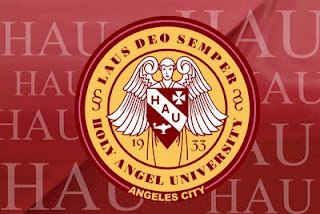And why you don’t hear about it in the news
The month-long impasse between the administration of Holy Angel University (HAU) in Angeles City, Pampanga and the school’s teachers and employees union (HAUTEU) remains unsolved with just a few weeks left before the current semester ends. The union began the strike last August 13.
In a statement posted on their Facebook page, the union outlines their complaints against the university. The HAUTEU claimed the school’s administration violated Republic Act (RA) 6728 or the “Government Assistance to Students and Teachers in Private Education Act.”
Section 10 of RA 6728 mandates tertiary institutions to hold consultations with student governments or councils, alumni, and faculty associations whenever they intend to impose tuition hikes. School administrators are also ordered to show audited financial statements to authorized representatives of these sectors. Read the full text of RA 6728 here.
In line with this, the Commission on Higher Education stated in its Memorandum Order #8 for 2012 that 70 percent of the incremental proceeds from any tuition increase should be used to augment teachers and school personnel’s benefits, salaries, and allowances. Download the said CHED memo here.

The union filed an unfair labor practice (ULP) case against the HAU administration before the Department of Labor and Employment (DOLE). The complaint centers on the alleged non-compliance of the university with what the abovementioned laws require.
To solve the dispute, the group is demanding a transparent computation of the school’s finances. The amount involved in the discussion is P20.9 million. Read the group’s statement here.
And while the dispute remains in the backyard of DOLE for resolution, the fate of HAU students hang in the balance. According to the HAU administration last August, nearly 100 teachers went on strike. One source told The Filipino Scribe that certain sections had been merged so that classes will proceed as usual.
Hence, some instructors are now handling double their usual teaching load, the source added. While this is good for the teachers financially, the setup can be physically taxing. The source is a female faculty member who didn’t join the strike. She requested anonymity for fear of possible repercussions from the school administration.
All is not well in this setup, however. Some students, the source adds, are in limbo since it is unclear to them whether they will take instructions from their substitute teachers or abide by what their original instructors say. The problem reached a low point during the midterm examination week in late August, with students unsure to who will administer the exam for them.

A news blackout?
Despite the fact that the strike had been going on for a month now, it has received little attention in the national media. The Philippine Daily Inquirer reported about it last August, and that was it. Business magnate Manuel V. Pangilinan is listed as the chair of the school’s board of trustees.
Pangilinan serves as the chair of a long number of entities with interests in virtually all sectors including telecommunication (Smart, PLDT, and most recently, Digitel) and other public utilities like MERALCO and Maynilad Water Services, to name just two.
Aside from owning the television network TV5, Pangilinan is also a shareholder in two national dailies: the Philippine Star and the Inquirer. Last year, he nearly acquired broadcast giant GMA Network. Aside from his significant control of the Philippine media, Pangilinan-managed companies are also heavy advertisers. Given that reality, it is logical for the national media to avoid antagonizing him through negative reportage, journalism ethics be damned.
Please like the Facebook page of “The Filipino Scribe”!







August 15 po nagstart ung strike hindi 13